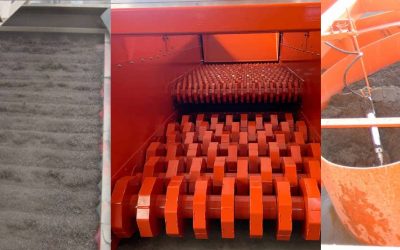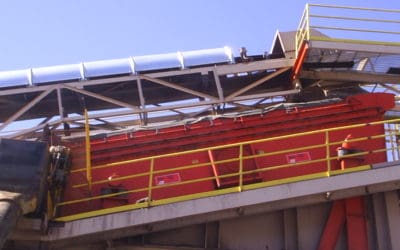Auto Shredder Residue (ASR) is the byproduct of vehicle shredding, composed of a complex mix of materials, like metals, plastics, rubber, glass, and other debris. It represents a significant portion of the waste stream in automotive recycling and plays a crucial role in recovering valuable materials for reuse.
The highly mixed nature of ASR makes it difficult to efficiently separate and recycle. By integrating advanced screening solutions, recyclers can enhance the overall effectiveness of ASR processing and make a positive environmental impact.
The Benefits of Recycling Auto Shredder Residue
Valuable resources (such as aluminum, copper, and steel) can be extracted and reused, reducing the need for new raw materials and lowering production costs.
Additionally, proper recycling supports sustainability by decreasing the carbon footprint associated with manufacturing new materials. Effective ASR recycling reduces the volume of waste sent to landfills, helping to conserve landfill space and prevent environmental contamination and health risks.
- Soil and water contamination: ASR contains a mix of materials, such as heavy metals (lead, mercury, cadmium), plastics, and chemicals, like PCBs (polychlorinated biphenyls). These substances can contaminate groundwater, surface water, and soil, harming ecosystems and making the land unusable for agriculture or development. Plus, they can affect drinking water supplies for nearby communities, potentially leading to serious health problems.
- Increased landfill waste: Without proper recycling, large volumes of ASR take up significant landfill space. This leads to the depletion of landfill capacity and increases the environmental burden of waste management.
- Exposure to toxic chemicals: Human exposure to the hazardous materials in ASR, such as heavy metals and asbestos, can occur through direct contact, inhalation, or ingestion. These substances can lead to respiratory issues, neurological damage, and long-term health conditions, like cancer or kidney disease.
- Harm to wildlife: Contaminants can enter ecosystems, harming plants and animals. This disrupts biodiversity and can cause bioaccumulation of toxic substances in the food chain, ultimately affecting human health as well.
Learn more about the benefits of recycling ASR.
Key Challenges in Processing ASR
Recycling ASR presents several challenges due to the complex and mixed nature of the materials it contains. Some of the most common challenges include:
- Contamination: The toxic substances that can be found in ASR pose health and environmental risks, requiring careful handling and specialized processing technologies to avoid pollution.
- Regulations: Due to the hazardous materials found in ASR, the recycling process must comply with strict environmental and safety regulations.
- Safe disposal of residual waste: Even after recycling, some non-recoverable hazardous materials must be disposed of in a safe, environmentally compliant manner.
- Energy and labor intensive: Recycling ASR is often more labor and energy-intensive compared to recycling more homogeneous materials, increasing the overall cost of processing.
- Variable market for recovered materials: The demand for recycled metals, plastics, and other materials can fluctuate, impacting the profitability of ASR recycling efforts.
- Challenges in sorting: Given the mix of lightweight and heavy materials, precise sorting is a challenge. Metals, plastics, and glass all need to be separated accurately for recycling, and traditional screening methods may struggle to handle the wide range of materials.
AEI’s Solutions
The HARDOX discs of the Freedom Disc Screen ensure that the equipment can withstand the abrasive nature of ASR, which often contains sharp metal shards, plastics, and other tough materials. This durability reduces maintenance costs and downtime, leading to a more efficient recycling process. And the screen’s design allows for a high throughput capacity, enabling it to handle large volumes of ASR efficiently.
The dual-vibratory action of the BIVITEC allows for more-effective stratification and separation of mixed materials found in ASR. This advanced screening technology can separate lightweight materials from auto shredder fluff.
By utilizing these technologies, recyclers can enhance the recovery of valuable materials, reduce landfill waste, and contribute to a more sustainable future. If you have any questions about our ASR recycling machines, please don’t hesitate to contact AEI Screens.


